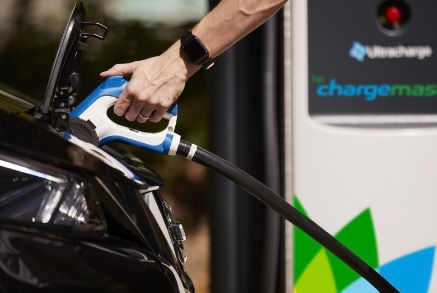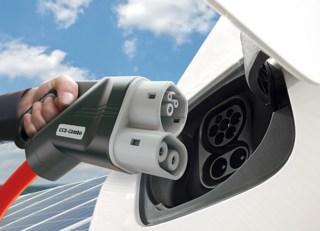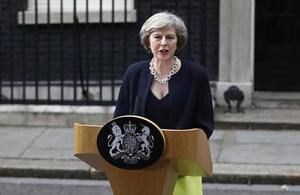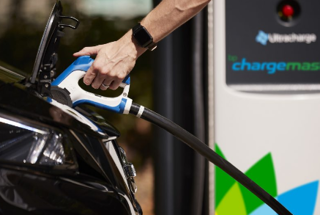A cross-party group of MPs have demanded that Government imposes an outright ban on the sale of all petrol and diesel vehicles by 2032 in a bid "fast track" adoption of electric vehicles (EVs).
The Business, Energy and industrial Strategy (BEIS) Committee branded the Government’s current emissions-cutting plan as “ambiguous”, criticising it for failing to enforce a ban on hybrids in 22 years’ time and stating that “zero should mean zero”.
Rachel Reeves MP, chairman of the Committee, said: “For all the rhetoric of the UK becoming a world leader in EVs, the reality is that the Government’s deeds do not match the ambitions of their words.
“The UK Government’s targets on zero-emissions vehicles are unambitious and vague, giving little clarity or incentive to industry or the consumer to invest in electric cars.
“If we are serious about being EV world leaders, the Government must come forward with a target of new sales of cars and vans to be zero emission by 2032.”
The BEIS report said that Government either acknowledge that petrol and diesel will ultimately need to be fully phased out from cars and vans, or admit that it is not seeking a zero emissions fleet. It cannot have both.”
BEIS also attacked last week’s decision by the Department for Transport (DfT) and Office for Low Emission Vehicles (OLEV) to cut the plug-in car grant.
On October 12 the Department for Transport (DfT) confirmed that the grant for hybrids will be cut by £1,000 and no longer apply to cars with a zero-emissions range of less than 70 miles, from November 12.
Under the new regime, car buyers looking to invest in a full EV will see their grant entitlement fall from £4,500 to £3,500.
The 22% cut in grant value for the cleanest cars reflected “recent reductions in the price of electric vehicles”, the DfT claimed.
The BEIS report, however, said that this move had been “made too soon and too suddenly”, and “risks undermining the UK’s burgeoning EV market”.
Charging infrastructure was also under fire in BEIS’s report.
Rachel Reeves MP said: "Our EV charging infrastructure is simply not fit for purpose. We cannot expect consumers to overcome ‘range anxiety’ and switch to electric vehicles if they cannot be confident of finding convenient, reliable points to regularly charge their cars.
“The Government cannot simply will the ends and leave local government, or private companies, to deliver the means.
“The Government needs to get a grip and lead on coordinating the financial support and technical know-how necessary for local authorities to promote this infrastructure and help ensure that electric cars are an attractive option for consumers".
The report said that poor provision of charging infrastructure was one of the greatest barriers to growth of the UK EV market, adding that public charge points will be required in residential areas for the 40–50% of homes in the UK that do not have off-street parking.
Currently there is just one public charger per 98,800 residents in Wales, compared to the North East, where the ratio is one charger per 3,931.
Commenting on the finding of the report, Society of Motor Manufacturer and Traders (SMMT) chief executive, Mike Hawes, described an ambition to “fast track” the Government’s already ambitious targets to impose legislation on the sale of ICEs “would be nigh on impossible”.
Hawes added: We said we need world class infrastructure and world class incentives to have any chance of delivering so the recent cuts to the plug-in car grant and lack of charging facilities – both of which are severely criticised by the Committee – show just how difficult it would be to accelerate this transition.
“Zero emission vehicles make up just 0.6% of the market meaning consumer appetite would have to grow by some 17,000% in just over a decade.
“This is unrealistic and rejects the evidence put forward by SMMT on behalf of the industry, which is investing billions into these technologies but which recognises consumers need greater confidence and support if they are to buy these vehicles in the numbers we all want.”
David Martell, chief executive of charge point provider BP Chargemaster, said that he had welcomed the invitation from the BEIS committee to present evidence to its enquiry and was pleased to see many of our concerns are addressed in its findings.
He added: “The largest factor limiting the growth of the UK EV market today is the number of electric cars physically available.
“There is probably sufficient demand for around 100,000 new EV registrations in 2018, but that number is likely to be around 60,000 due to supply constraints.
“In terms of charging infrastructure, while the committee endorses the provisions in the Automated and Electric Vehicle Act 2018 to ‘ensure interoperability’, it ignores the fact that this ease of access already exists thanks to the Alternative Fuels Infrastructure Regulations 2017, which mandate ‘ad hoc’, pay-as-you-go access to all public charging points – so the aim of interoperability has already been achieved with existing legislation.
Martell disagreed with the Committee’s finding that EV charging infrastructure is ‘not fit for purpose’.


















Login to comment
Comments
No comments have been made yet.